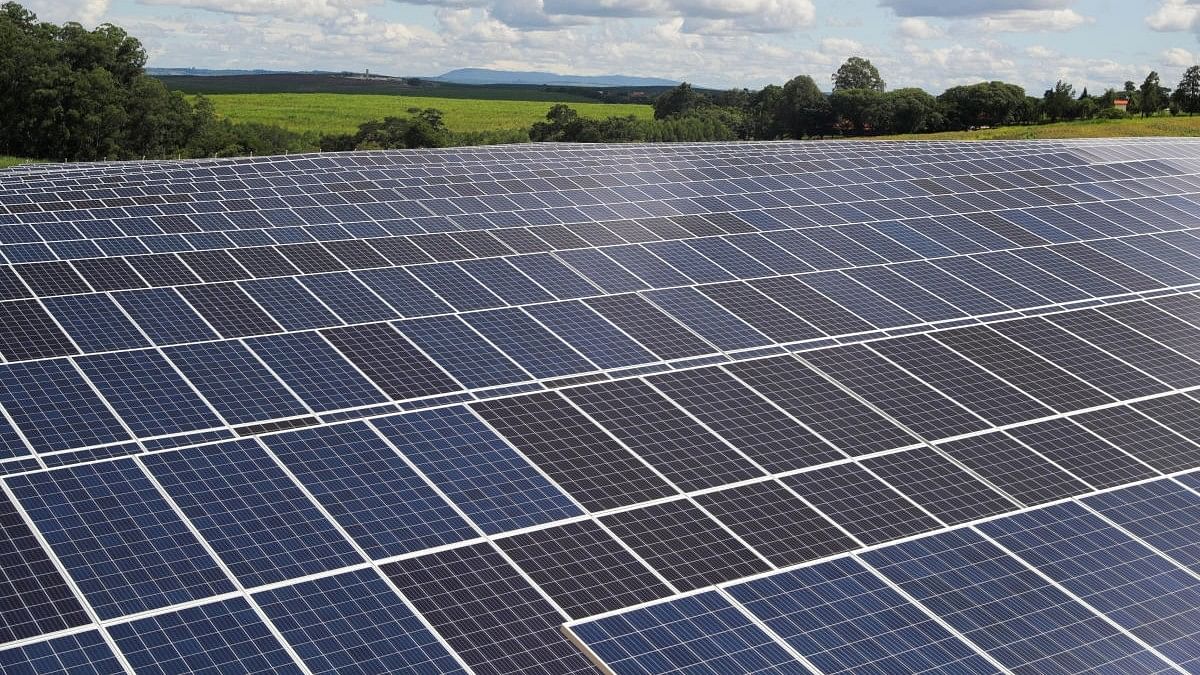
Representative image of solar panels.
Credit: Reuters File Photo
Bengaluru: India’s aspiration to become a "solar superpower" hinges on production of a key raw material, polysilicon. This is a semiconductor that helps convert photons to electricity and is used in the production of solar cells and modules.
However, India is currently dependent on polysilicon (and solar cells/panels) imports, mainly from China. But the country's willingness to enhance its solar capacity increasingly depends on making the domestic manufacturing ecosystem robust, according to a new report by the Centre for Study of Science, Technology and Policy (CSTEP), a think tank.
The production of polysilicon requires large amounts of high-quality silicon. While the mineral is extensively available, its wide-ranging applications across sectors have also made it highly sought-after.
In a technical note, titled Viewing India’s Net-Zero Ambition Through the Lens of Polysilicon, the think tank noted that though India is the world’s fourth largest solar power generator and is also set for large-scale capacity additions, the country's manufacturing of solar photovoltaic (PV) has remained low, with only 38 GW/year. This has left the demand for polysilicon “negligible”.
“Domestic polysilicon manufacturing will augment this journey by increasing self-reliance, bettering cell efficiency, localising supply chains, and lowering costs in the long term,” the note, compiled by Sweta Bhushan, Vidisha K, Kaveri Ashok and Ramya Natarajan, said.
Rise in demand
The note underlined solar power as integral to India’s net-zero goal and estimated that annual capacity additions of up to 100 GW could lead to annual polysilicon demands of 150 to 300 kilo tonnes.
“Because polysilicon demand is about to skyrocket, prices may shoot up in the coming years. The market may not continue to be in oversupply, which indicates that we must consolidate our value chain by relying less on imports,” it said.
Domestic polysilicon manufacturing can, at once, reduce the price, protect the industry from international market volatility and ensure a high-quality product, also helping India become an exporter, the note said.
The think tank highlighted incentives for acquiring raw material, policy and logistical support for the industry and capacity-building initiatives as potential measures to boost domestic manufacturing.